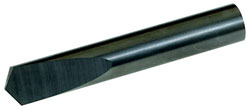dcarver
Well-known member
Oh gawd no.. not another metric bike with sae shit? Just sayin'... keep it all metric.. the only way to go.If you are wondering why I did this....just look at my avatar. It pretty much explains me in a nut shell.I have a Suzuki SV650 which shifts like butter.
A co-worker has a Hayabusa which shifted not so good.
He heard that worn damper blocks or "cush dampers" might cause harsh shift-itis so he put in new ones and claims it cured the affliction.
My FJR shifts harsher than I would like so just before I took the wheels in to have new rubber mounted I thought I'd have a peek at the damper blocks.
And that is how I ended up in this 12 step support group :dribble:
By the way, once when I looked at my SV650's damper blocks there was a "rubber dust" of some description inside the hub so I thought I might find the same within the FJR hub. Maybe it's more common to chain drive bikes....who the **** knows. :blink: (It was clean inside)
Anywho... I've got the wheel on a work surface and have carefully drilled out the first two bolts. They are metric and appear to be slightly larger than a number 10 standard bolt. I've only got taps for standard sizes and the next one up is a quarter twenty which I think I will use (it is however a fair bit larger). If I bought the same size metric tap and bolt I doubt I'd be able to install it in the original hole as I am doing this all free hand and as brilliant and skilled as I am, the hole I made isn't perfectly centered on the original. But its very close.
I figure I'll get a button cap bolt like the one Iggy shows in a quarter twenty and use the wimpiest loctite like he suggested. B)
































































